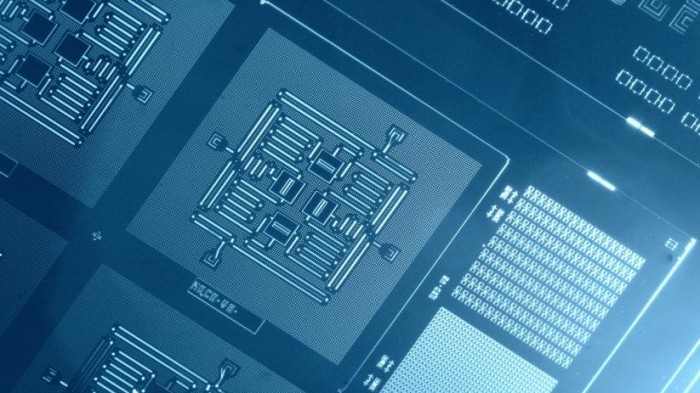Quantum Computers Finally Go Head-to-Head

In the red corner, weighing in with just five qubits, a quantum computer from the University of Maryland in College Park. In the blue corner, also with five qubits, its rival from IBM. Welcome to the first fair quantum computer fight.
Researchers have described a series of experiments that, for the first time, saw two quantum computing devices, built using different underlying technologies, run the same algorithms to establish which would win. The qubits—the quantum equivalent of binary bits—in IBM’s chip are made from superconducting metals, while the University of Maryland’s uses electromagnetic fields to trap ytterbium ions.
The experiment was made possible because the two chips, while using different underlying physics, both run algorithms in the same way. And because IBM has opened its chip up, allowing it to be programmed online by researchers, the University of Maryland team was able to give it the same challenge as its own device.
Ultimately, the IBM device was faster—but it was also less reliable. That’s because the University of Maryland device uses qubits that are all interconnected, which means they can all share information with each other. IBM’s, meanwhile, must swap information via a central hub, and that process can cause delicate quantum states to be destroyed.
The chips are still modest in power, and the results don't yet prove that one of the two technologies will win out. But the ability to directly compare their abilities will become even more useful in the future, as researchers seek to whittle down a broad field of competing quantum approaches to find the best.
In the past, quantum computers have been pitted against regular hardware, rather than their quantum rivals. Notably, D-Wave’s controversial device has been tested against normal silicon processors on several occasions, and shown to be far faster—at a handful of very specific tasks.
As Science notes, the results of the new test are perhaps less exciting than their symbolic nature. In the past, it’s not been possible to directly compare the performance of quantum devices in this way. The fact it can now be done is another sign that quantum computing nudges ever closer to reality.
(Read more: arXiv, Science, “IBM Shows Off a Quantum Computing Chip,” “Google Says It Has Proved Its Controversial Quantum Computer Really Works,” “Can a Powerful New Quantum Computer Convince the Skeptics?”
Keep Reading
Most Popular
Large language models can do jaw-dropping things. But nobody knows exactly why.
And that's a problem. Figuring it out is one of the biggest scientific puzzles of our time and a crucial step towards controlling more powerful future models.
How scientists traced a mysterious covid case back to six toilets
When wastewater surveillance turns into a hunt for a single infected individual, the ethics get tricky.
The problem with plug-in hybrids? Their drivers.
Plug-in hybrids are often sold as a transition to EVs, but new data from Europe shows we’re still underestimating the emissions they produce.
Google DeepMind’s new generative model makes Super Mario–like games from scratch
Genie learns how to control games by watching hours and hours of video. It could help train next-gen robots too.
Stay connected
Get the latest updates from
MIT Technology Review
Discover special offers, top stories, upcoming events, and more.